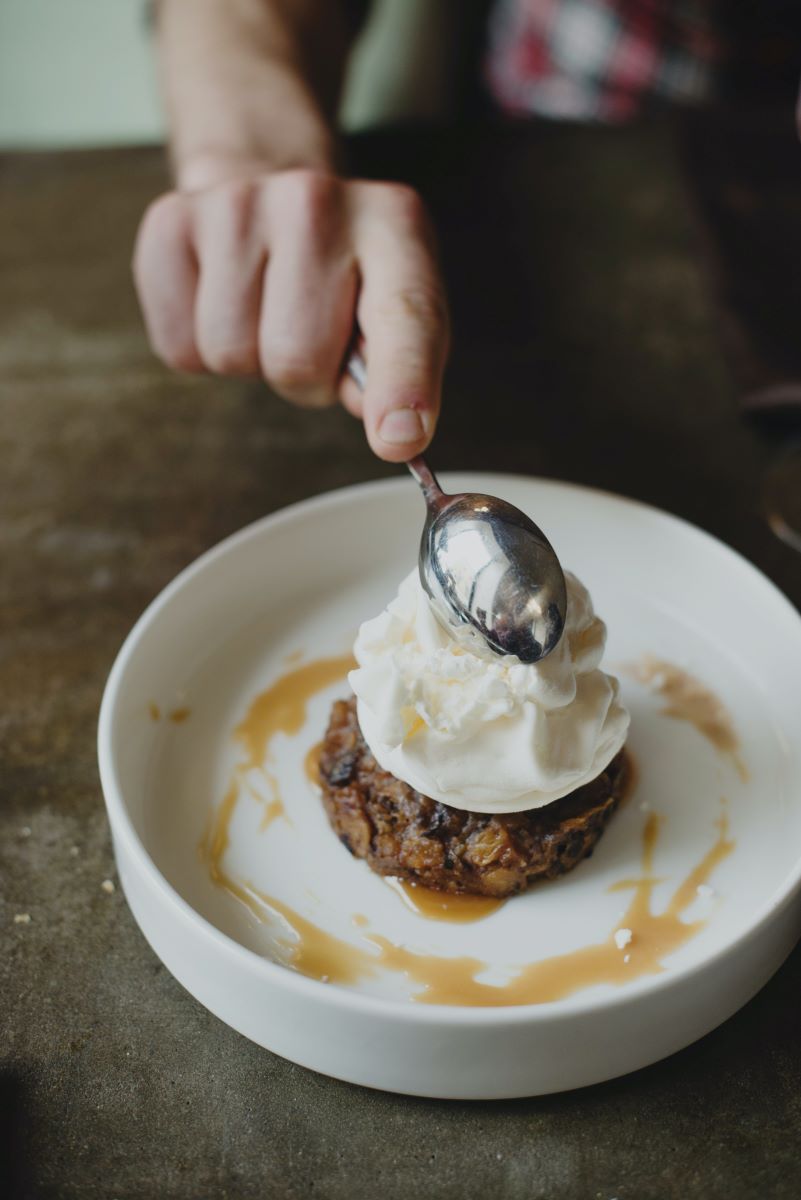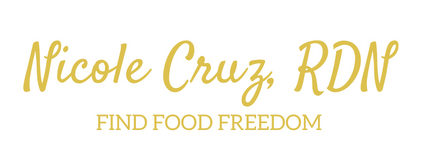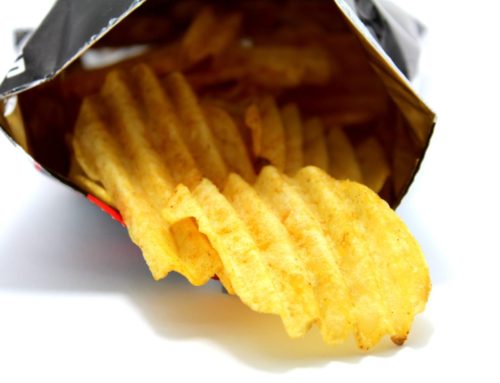Is emotional eating really that bad for you?
Do you find yourself spoon deep in a bowl of ice cream when you’re sad? Do you raid the cupboards for chips when you get angry? Maybe you pop candy in your mouth when you’re stressed.

You might be concerned about emotional eating because it gets a bad rap these days. You know the mantra: food is fuel, and that’s all it should be. You’ve probably heard comfort eating leads to weight gain, contributes to poor health outcomes like diabetes and high blood pressure, and can become an addiction.
However, there’ a lot more to food than simply being fuel. Food is also a source of pleasure, connection, and yes, comfort.
Emotional Eating Has a Positive Function
Emotional eating means you eat for reasons other than hunger. Those might include feeling sad, angry, stressed, lonely, happy, or excited.
When I think back about times in my life, many of them revolved around food.
I think of my Grammy and I smile because I remember eating grilled cheese sandwiches with American cheese on Wonder bread sitting at her dining room table.
At a time when our community was grieving about loss and destruction, I reached for a hot, sweet latte to warm my body and soothe my soul.
When I had my babies, and when we lost my Father-In-Law, friends and family showered us with meals in congratulations and grief.
These are all ways that eating emotionally can be functional. They’re used to soothe, comfort, feel good, connect, celebrate, or evoke positive emotions.
When Emotional Eating Might Be Problematic
You feel out of control
Have you ever thought, I’ll just have a piece of cake, and then you continue to go back for a second, third, and fourth until you’re hunched over in pain? Maybe you were telling yourself to STOP but you felt like the cake was a magnet and you couldn’t put down the fork. If you feel like you can’t stop eating or you don’t have a choice when it comes to eating, emotional eating may be taking up more space than feels good in your life.
The caveat is knowing if you’re feeling pulled to eat due to restriction, as opposed to emotion. If you don’t allow yourself to eat what you want, or you don’t eat enough in general, then you may feel drawn to food because you’re hungry or dissatisfied, not because you’re eating emotionally.
You’re punishing yourself
You might be eating as a way to scold yourself for the size of your body, what you ate, or because you’re bad or wrong. Do you hear yourself saying…
- “You’ve already screwed up anyway, who cares.”
- “Of course you’re going to keep eating, you fat…”
- “You deserve to feel like #%$&, just keep eating.”
- “You can’t do anything right. Of course you’re in the bag of chips again.”
If eating makes you feel physically ill, or you feel bad while doing it, you may be using food as a punishment.
You don’t know how you feel
The goal of emotional eating is not to completely numb your feelings. The purpose is to use food as a way to soothe or enhance feelings. If emotional eating is utilized without knowing how you feel or as a way to escape and stuff down feelings, then it may be doing more harm than good. It may be leaving you feeling more disconnected than connected to yourself and your emotions.
You’re eating without awareness
Similar to not knowing how you feel, eating without awareness is a sign of numbing. If you can’t recall what you ate, how it tasted, or where you were when eating, you may be eating more to disengage in life than to participate in it.
Eating is your only coping tool
If you imagine a toolbox full of coping strategies, what tools would you find available in yours? It’s normal to learn to use eating as a way to cope at a young age. If eating became your primary way of dealing with discomfort when you were younger, or at any age, it may have taken over as the only tool. To be able to utilize emotional eating functionally, we need multiple tools in our toolbox. When you experience difficult emotions you need to have a choice as to what tool you want to use.
What You Can Do If Emotional Eating Is Interfering With Your Life
Build your coping toolbox
If eating is your only tool, make a list of other coping strategies you have used in the past or you think might work.
Here are a few ideas to start: paint, draw, go for a walk, stretch, do yoga, meditate, journal or write, call a friend, listen to music, hit pillows, break something, cry.
Make a list of your own ideas. You can write them down and put them in a physical container or keep the list hanging on a wall or in a notebook. Practice using them even when you’re not distressed.
Pause before turning to food
If you’re hungry, eat! If you have a hard time telling if you’re hungry, read Am I Hungry? Connect to Your Hunger and Know When to Eat. If you feel magnetically pulled to food and you’re clear you’re not hungry, try pausing before eating. The goal of taking a pause is twofold.
- Get clear about how you feel.
- Actively (instead of reactively) choose how to respond.
You may need to do a check-in, ask yourself, What am I feeling? Or take a minute to journal and breathe to touch base.
After you get clarity, ask yourself what tool you want to use. You might choose food or you might decide to try something different first, and if you still want to eat after, then you can do that too.
Feed yourself consistently
If your body is physically hungry, it will want food. This is a survival mechanism to keep you alive. You have to have a level of baseline nourishment or you will feel compelled to eat. You can’t assess emotional eating in a state of hunger.
If you’re not clear about your hunger cues, establish a consistent eating schedule for nourishment. You will likely need to eat a variety of food groups every 2-3 hours. If this is overwhelming, seek out the support of a Registered Dietitian well versed in intuitive eating.
Eat satisfying foods you enjoy
Much like needing to eat consistently, you also have to eat foods you truly enjoy. In Intuitive Eating, Evelyn Tribole and Elyse Resch discuss the satisfaction factor as one of the core tenants:
The Japanese have the wisdom to keep pleasure as one of their goals of healthy living. In our compulsion to comply with diet culture, we often overlook one of the most basic gifts of existence—the pleasure and satisfaction that can be found in the eating experience. When you eat what you really want, in an environment that is inviting, the pleasure you derive will be a powerful force in helping you feel satisfied and content. By providing this experience for yourself, you will find that it takes just the right amount of food for you to decide you’ve had “enough.”
Emotional eating is a normal, and even healthy, component of your relationship with food. If eating for comfort has taken a front seat in your life, be gentle with yourself as you work to develop and practice other coping strategies. Be kind. Be gentle. This work takes time.




Leave A Comment